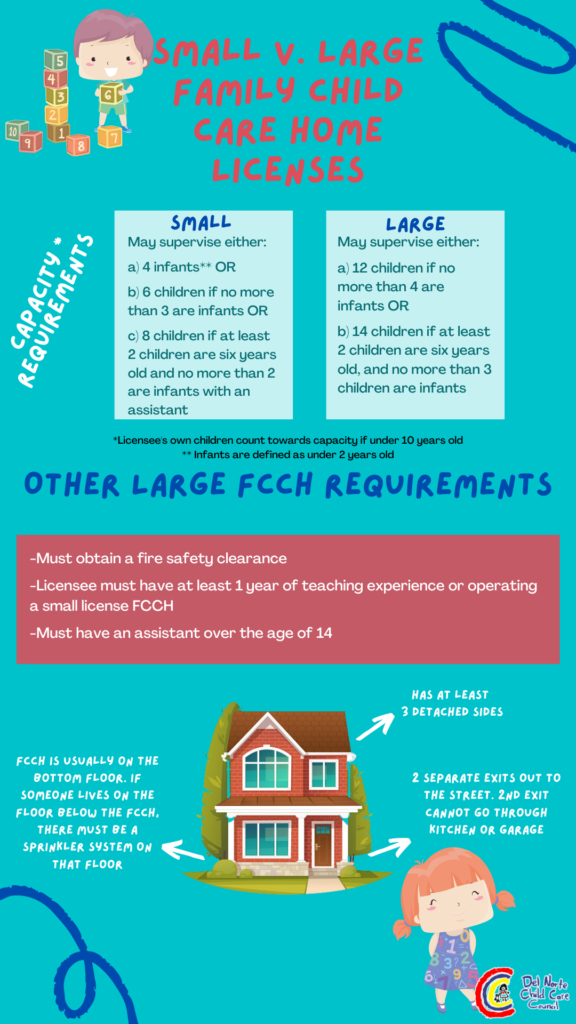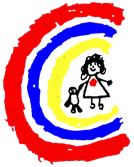Because quality child care means more success down the road.
A child’s brain develops most significantly during the first five years of life—and the quality of child care in these early years can make a difference between a healthy start and falling behind.
Through our wide range of support for child care providers, Del Norte Child Care Council works to increase the amount of quality, affordable child care available to all families in Del Norte County.
Our training and consultation services offer guidance to new providers entering the field and enhance the skills of established child care professionals.
Here are some helpful website links for providers:
Child Care Licensing Laws and Regulations
Provider Information Notices (PINs)
Compliance and Regulatory Enforcement (CARE) Tools for inspections
Caregiver Background Check- Guardian
Child Care Licensing Quarterly Updates
If you’re interested in opening a large Family Child Care Home, here’s some information about the difference between a small FCCH license and a large FCCH license.

Resources and activities for families and childcare providers to entertain and educate the kids you care for.
1. Sesame Street in Communities: Parents and Child Care Providers! Sesame Street offers a multitude of activities, storybooks, videos, and trainings on their website.
2. Los Angeles Public Library: Explore everything your library card can do today! You can read eBooks, listen to audiobooks, stream select movies, tv shows, music, and more!
3. Virtual Museum Tours!: Travel + Leisure have put together a number of renowned international museums that are offering virtual tours and exhibits.
4. #SaveWithStories!: In an effort to bring a bit of joy to children around the world – and a little break for their parents – a number of celebrity parents are holding story time sessions on social media.
5. Child Care Resource Center YouTube Channel: View multiple virtual learning sessions such as, story time, songs to sing along and DIY activities.
6. Gee Whiz Education Spring Activity Booklet: The experiences in this booklet are easy-to-implement, designed to be conducted in a home setting and engage children in learning. There are experiences for all ages (infants through school-age).
7. Ready4K!: Ready4K sends three simple texts a week with fun facts and easy tips on how to use everyday family activities — like grocery shopping — to boost your child’s learning.
8. The Post Institute: Solutions for parenting challenging children. Resources also include current issues regarding COVID-19.
9. National Center for PTSD: For Providers and Community Leaders: Helping People Manage Stress Associated with the COVID-19 Virus Outbreak
10. Online Resources for PreK/TK/K: This list of online resources to support early childhood learning at home was gathered by Cindi Kaup, she can not vouch that all sites are developmentally appropriate, most come from reputable sites, please use your discretion when deciding how much and what children are viewing online.
11. PBS Kids: How to talk to your kids about coronavirus.
12. Red Grammer: Uplifting children’s music. Hosting weekly live concerts via Facebook.
13. Help Your Family De-Stress During Coronavirus Uncertainty: How to manage anxiety, stay active, and focus on your family’s well-being.
14. Taking Care of Ourselves: Stress and Relaxation: Stress is natural and may seem inevitable. However, it can take a toll on your health and effectiveness as an early childhood educator or parent. It impacts the quality of care that you can give. When you are too stressed, it is difficult to offer the praise, nurturance, and structure your children need.
15. Coping Calendar: This Coping Calendar has 30 suggested actions to look after ourselves and each other as we face this global crisis together.
16. Khan Academy: Khan Academy offers practice exercises, instructional videos, and a personalized learning dashboard that empower learners to study at their own pace in and outside of the classroom.
17. Simply Support: We create early childhood education resources that can be helpful for classroom staff, family home providers and parents.
18. Handling Your Child’s Challenging Behaviors at Every Age: This resource for parents and caregivers provides positive discipline tips and resources to handle challenging behaviors in babies, toddlers, preschoolers, school-age children, and teenagers.
19. Del Norte Unified School District: Distance learning packets for PreK though 9th grades. New packets available every Friday.
20. Education.com: Get the Help You Need for At-Home Learning. We are offering our registered Basic members free access to some of our best Premium resources to help support you during school closures. Sign up for a free account to gain access.
21. California State Parks PORTS Distance Learning Program: In response to the COVID-19 disruption in school instruction, California State Parks is now broadcasting our PORTS Home Learning Programs from locations across California. Students learning from home will be able to access our precious natural resources and cultural heritage from the comfort of their own home.
22. Mariela’s Music Time!: Music and Play Time videos are now available for home-based providers to enjoy with the children in their care. Every video session includes interactive bilingual songs and fun activities in English and Spanish. A new recording will be shared every Wednesday and Friday from April 15 through May 15.
23. The Outdoor Classroom Project (OCP) is dedicated to increasing the quantity, quality, and benefit of outdoor experiences for children in early care and education programs through providing educational and consulting services on the value and design of engaging outdoor learning environments to teachers, administrators, and parents.
24. Gardening with Kids: What to plant and fun activities.
25. Curiosity Corner: Each week a new video will feature a different book intended to instill the love of reading in children and their families. Brought to you by Quality Counts California and the DNCOE.
How To Run a Co-Op Child Care Arrangement
Cooperative child care arrangements provide an affordable alternative to paying for child care, and they promote cooperation and community. In California, a group of parents can agree to care for their children through a cooperative arrangement, without getting a family child care home license. The cooperative arrangement cannot involve payment and it has to meet all of the following conditions:
What Requirements Do Co-Ops Need to Meet in Order to Be License Exempt? A co-op child care agreement among parents is license-exempt only if it meets the following conditions:
• Caregivers do not receive payment for services
• Parents rotate responsibility for care of all of the children equally among themselves;
• Every caregiver is a parent, legal guardian, or adult relative of at least one child in the cooperative; and
• No more than 12 children are cared for at any given time by any provider/parent.
What Types of Providers Are License Exempt? Many child care providers are license-exempt, including:
• A provider who cares only for his/her relatives,
• A provider who only cares for the children of one other family (other than the provider’s own children, if he or she has any children),
• Cooperative agreements (Co-ops) in which parents share responsibility for child care.
• Other categories of license exempt programs can be found in Health and Safety Code § 1596.792.4
Although these cooperative child care arrangements can be informal, families may consider using a written agreement about the details of the arrangement, scheduling, and each parent’s responsibilities. A written agreement will make the arrangement clearer to the parents and to any government agencies, in the event that there is a dispute or a question about whether the arrangement needs to be licensed.

